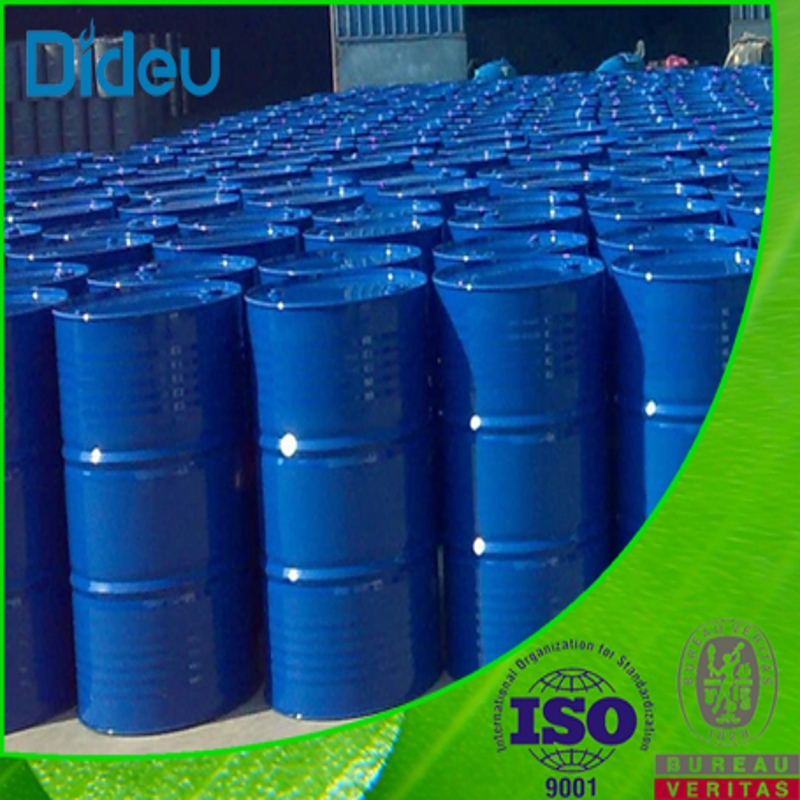-
Categories
-
Pharmaceutical Intermediates
-
Active Pharmaceutical Ingredients
-
Food Additives
- Industrial Coatings
- Agrochemicals
- Dyes and Pigments
- Surfactant
- Flavors and Fragrances
- Chemical Reagents
- Catalyst and Auxiliary
- Natural Products
- Inorganic Chemistry
-
Organic Chemistry
-
Biochemical Engineering
- Analytical Chemistry
-
Cosmetic Ingredient
- Water Treatment Chemical
-
Pharmaceutical Intermediates
Promotion
ECHEMI Mall
Wholesale
Weekly Price
Exhibition
News
-
Trade Service
On April 13, 2021, the U.
S.
Food and Drug Administration (FDA) accelerated the approval of the Trop-2 antibody conjugate sacituzumab govitecan for patients who have previously received platinum-containing chemotherapy and PD-1/PD-L1 inhibitor treatment Patients with locally advanced or metastatic urothelial cancer.
Sacituzumab govitecan is an antibody-conjugated drug consisting of an antibody targeting Trop-2 and the active metabolite SN-38 of the chemotherapeutic drug irinotecan.
It can deliver SN-38 into cancer cells by binding to Trop-2 protein.
The approval is mainly based on data from the TROPHY-U-01 study (IMMU-132-06; NCT03547973).
This is a global, open-label, multi-cohort Phase II study to evaluate the efficacy and safety of sacituzumab govitecan as a single agent in patients with locally advanced or metastatic urothelial cancer who have failed platinum-based chemotherapy or immunotherapy.
The study included 112 subjects who were given intravenous sacituzumab govitecan (10 mg/kg) on days 1 and 8 of the 21-day cycle.
The primary study endpoint is the objective response rate (ORR), and the secondary endpoints include duration of response (DOR), progression-free survival (PFS) and overall survival (OS).
According to data published at the 2020 European Society of Medical Oncology Annual Meeting (ESMO 2020), the median PFS of patients using sacituzumab govitecan was 5.
4 months (95% CI, 3.
5-6.
9), and the median OS was 10.
5 months (95%).
CI, 8.
2-12.
3). In addition, sacituzumab govitecan is safe, and diarrhea is the most common treatment-related adverse event (AE).
Other AEs to be aware of include neutropenia, nausea, fatigue, hair loss, anemia, vomiting, constipation, loss of appetite, skin rash, and abdominal pain.
The latest research data shows that the ORR confirmed with sacituzumab govitecan is 27.
7% (95% CI, 19.
6-36.
9), of which the complete response rate (CR) is 5.
4%, the partial response rate (PR) is 22.
3%, and the median DOR is 7.
2 months (95% CI, 4.
7-8.
6; range from 1.
4+ to 13.
7).
In addition, a phase III confirmatory trial TROPICs-04 (NCT04527991) plans to recruit 482 patients with locally advanced or metastatic urothelial cancer who have progressed after receiving platinum-based chemotherapy or immune checkpoint inhibitors.
The final approval of Sacituzumab govitecan will depend on the clinical benefit data of the TROPICS-04 trial.
References: 1.
FDA grants accelerated approval to sacituzumab govitecan for advanced urothelial cancer.
News release.
FDA.
April 13, 2021.
Accessed April 13, 2021.
https://bit.
ly/3tgxmgy
S.
Food and Drug Administration (FDA) accelerated the approval of the Trop-2 antibody conjugate sacituzumab govitecan for patients who have previously received platinum-containing chemotherapy and PD-1/PD-L1 inhibitor treatment Patients with locally advanced or metastatic urothelial cancer.
Sacituzumab govitecan is an antibody-conjugated drug consisting of an antibody targeting Trop-2 and the active metabolite SN-38 of the chemotherapeutic drug irinotecan.
It can deliver SN-38 into cancer cells by binding to Trop-2 protein.
The approval is mainly based on data from the TROPHY-U-01 study (IMMU-132-06; NCT03547973).
This is a global, open-label, multi-cohort Phase II study to evaluate the efficacy and safety of sacituzumab govitecan as a single agent in patients with locally advanced or metastatic urothelial cancer who have failed platinum-based chemotherapy or immunotherapy.
The study included 112 subjects who were given intravenous sacituzumab govitecan (10 mg/kg) on days 1 and 8 of the 21-day cycle.
The primary study endpoint is the objective response rate (ORR), and the secondary endpoints include duration of response (DOR), progression-free survival (PFS) and overall survival (OS).
According to data published at the 2020 European Society of Medical Oncology Annual Meeting (ESMO 2020), the median PFS of patients using sacituzumab govitecan was 5.
4 months (95% CI, 3.
5-6.
9), and the median OS was 10.
5 months (95%).
CI, 8.
2-12.
3). In addition, sacituzumab govitecan is safe, and diarrhea is the most common treatment-related adverse event (AE).
Other AEs to be aware of include neutropenia, nausea, fatigue, hair loss, anemia, vomiting, constipation, loss of appetite, skin rash, and abdominal pain.
The latest research data shows that the ORR confirmed with sacituzumab govitecan is 27.
7% (95% CI, 19.
6-36.
9), of which the complete response rate (CR) is 5.
4%, the partial response rate (PR) is 22.
3%, and the median DOR is 7.
2 months (95% CI, 4.
7-8.
6; range from 1.
4+ to 13.
7).
In addition, a phase III confirmatory trial TROPICs-04 (NCT04527991) plans to recruit 482 patients with locally advanced or metastatic urothelial cancer who have progressed after receiving platinum-based chemotherapy or immune checkpoint inhibitors.
The final approval of Sacituzumab govitecan will depend on the clinical benefit data of the TROPICS-04 trial.
References: 1.
FDA grants accelerated approval to sacituzumab govitecan for advanced urothelial cancer.
News release.
FDA.
April 13, 2021.
Accessed April 13, 2021.
https://bit.
ly/3tgxmgy







